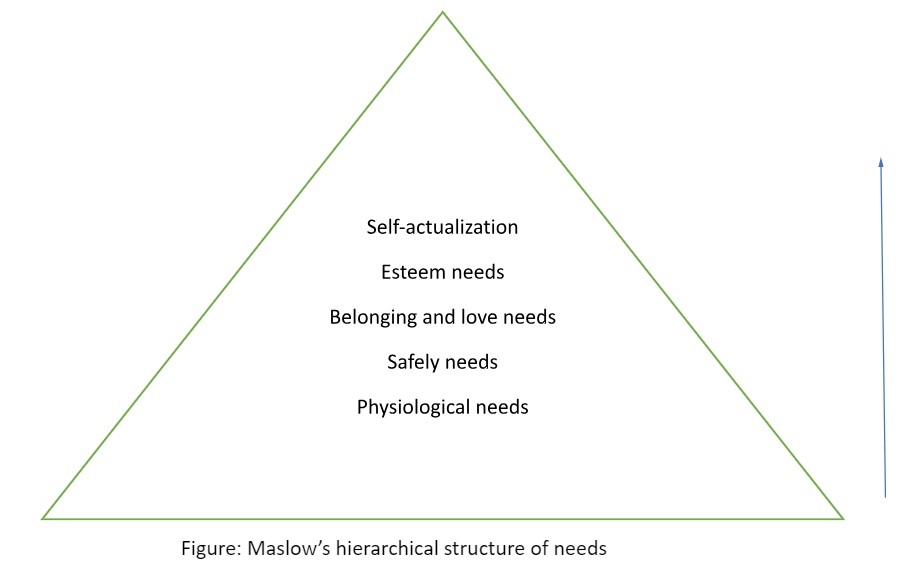ABSTRACT:
Background: The main aim of this article is to understand the role of motivation and positive reinforcement in homoeopathic chronic case management.
Introduction: Motivation is a process which energies an individual to act or behave in a particular manner for attending some specific goal or purpose.
Every human being has to strive for the satisfaction of his basic needs and push the individual towards the process of motivation. Need is the basic element of a motivational process. Every human being moves forward and enhances himself with the driven force called drive.
For easy understanding we can divide need into two broad classifications.
- Biological
- Socio- psychological needs.
Biological needs are our bodily or organic needs. It comprises the need for oxygen, water, food etc. for basic physiological functioning of the body. Other categories of biological need include need for rest, regular elimination of waste products, action when rested, sleep after a period of wakefulness, protection of threats etc. We can place the third category of biological need as need for satisfaction of sex urge or desire to seek sex experiences. And the last category are the needs associated with the demands of our senses. These include the need for physical contact, sensory stimulation, variability and manipulation etc.
On the other hand, socio- psychological needs include the needs that are associated with the socio-cultural environment of an individual which are acquired through social learning.
It can be categories as-
- Need for freedom or gaining independence
- Need for security
- Need for love and affection
- Need to achieve
- Need for recognition or social approval
- Need for social company
- Need for self-assertion
- Need for self-expression or self-actualization
These needs give rise to drive, which is an aroused awareness of heightened tension that sets up for a desirable goal -oriented behavior.
It is not uncommon among patients who are under the chronic care unit to lack such kind of goal-oriented behavior due to various reasons. Some of the factors are
- Physically ill
- Lack of social interaction
- Dependent on others
- Loss of hope
- Frustration etc.
There are various theories of motivation proposed by different schools of psychology.
One among them is Maslow’s Self Actualization theory. According to this theory, the motive of self-actualization is related to one’s motivation. Self-actualization refers to an individual’s need for his or her own potential. Self-actualizers are the one who make the fullest use of their capacities. Human needs are arranged themselves in hierarchies of prepotency i.e, the appearance of one need depends on the satisfaction of another. They are closely related to each other and may be arranged from lowest to highest development of personality.
He proposed five sets of basic needs that can be arranged in definite hierarchical order.

Starting from the satisfaction of the physiological needs, every individual strives for the satisfaction of the other needs of higher order. This striving for one or the other needs causes motivation of his behavior. The satisfaction of one need leads an individual to try for the satisfaction of other needs. In this way the motivational behavior of a person is always dominated not by his satisfactions but by his unsatisfied wants, desires or needs.
In homeopathic treatment, individualization is the essence of the treatment. Each individual’s behavior, habit, intellectual character and domestic mode of living are taken into considerations along with the homeopathically indicated medicine as a part of the treatment protocol
A brief reflection on the role of motivation in homoeopathic chronic care management.
A 62 years old female of known case of Pott’s disease and BPAD, currently in remission was admitted under the palliative care unit of chronic care management for paraplegia and other neurological disorders. She is by nature- a very cooperative and affectionate woman who used to smile most of the time and was friendly with people around and the caretakers. After a week of admission patients started to get recurrent episodes of fever towards evening on most of the days. Blood investigation shows mild rise of ESR and 4-5/HPF pus cells in urine. In spite of giving well indicated homoeopathic medicine it failed to help the patient except to some extent partial relief for a very short period of time.
After a series of observations and interviewing the patient, the examiner found out about the patient’s lack of motivation in the treatment process. She complained of pain most of the time, ring the alarm bell more often for help, reduced smiling to the examiner unlike before and became less cooperative.
At this point the examiner identified the need of belonging and love in the patient and adopted the technique of reinforcement in the form of incentives to drive the patient’s motivation, in other word- rewards in the form of incentives were given for some desirable behaviors like smiling, greeting the examiner etc. During each visit of IPD rounds- whenever a patient shows these gestures of greeting and smile, incentives in the form of edible items (as per the patient’s choice) were given and they appreciated the gestures. This technique continued for a while and within subsequent days there were visible changes in the patient’s behavior- patients started smiling more often, greeting people with handshakes thereby reducing the episode of recurrent fever and complaint of pain intensity at the same time.
In this way the motivated behaviors of the patient are brought back by identifying the hierarchy of need and through implementing positive reinforcement to drive the patient’s motivation.
Conclusion: Motivation plays an important role in homeopathic chronic care management in understanding the patient’s need to drive better health behavior and overall wellness. And technique of reinforcements can be used in order to bring up the desirable behavior from the patient.
REFERENCES:
1.MANGAL, S. K. Introduction to Psychology. STERLING PUBLISHERS PVT, 2022.
2.Morgan, Clifford Thomas, and Clifford Thomas Morgan. Study Guide to Accompany Introduction to Psychology. McGraw-Hill, 1956.
3.Mangal SK. Advanced educational psychology. New Delhi, India: Phi Learning; 2012.
4.Hahnemann S, Boericke W, Dudgeon R. Organon of medicine. New Delhi: B. Jain Publishers; 2011.


